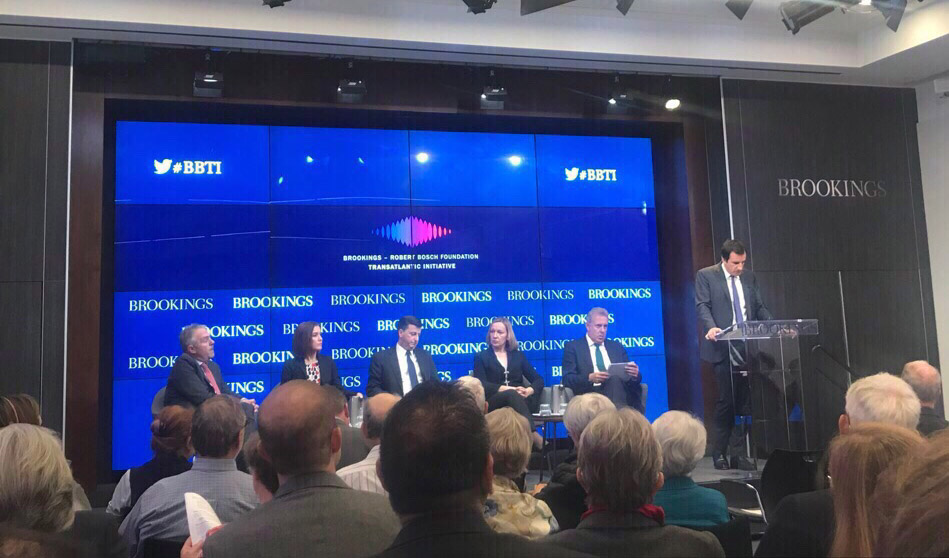WASHINGTON– The United Kingdom and the European Union have settled most of the terms in the Brexit agreement to allow Great Britain to leave the EU, but the border between the Republic of Ireland and Northern Ireland remains a divisive issue that might derail the process, British ambassador to the United States said Tuesday.
Speaking at the Brookings Institution, Ambassador Kim Darroch said that the rights of European Union citizens living in the U.K. and U.K. citizens living elsewhere in Europe as well as the debate over how much the U.K. will give the EU have been settled.
“The withdraw agreement is 95 percent done. The hardest part is what happens on the Irish border. We all want the same end goal of no hard border between Northern Ireland and the Republic of Ireland, but the struggle is on how to get there,” Darroch said.
The Irish government wants to ensure the northern border remains open to trade, immigration and other services from Europe even if there is no deal. The EU proposed recognizing Northern Ireland as its own territory for trade purposes and allowing it to effectively remain in the EU, but British Prime Minister Theresa May is concerned about the effects of breaking up the U.K.’s common market.
Brookings Senior Fellow Amanda Sloat said she is concerned that the conservative Democratic Unionist Party, which holds the most seats in the Northern Ireland Assembly and pushes for a hard exit from the EU rather than compromises, has an outsized voice in the debate.
“The Northern Ireland Assembly has not met in 500 days. The only voice being heard is the Democratic Unionist Party who will prop up May,” Sloat said.
The DUP advocates for a hard Brexit and is willing to accept any consequences, even if that means unrest between Northern Ireland, which is a territory of Great Britain, and the Republic of Ireland.
Lucinda Creighton, former Irish Minister for European Affairs, has seen that unrest firsthand and does not want the nation to regress.
“I saw bombs in Northern Ireland that devastated people’s lives; thousands of people were killed. I am deeply concerned about what may happen if there is no deal by the end of this year,” Creighton said.
Darroch was more optimistic.
“It would be damaging to the U.K. and the EU but we would survive a no deal outcome,” he said.
Sloat noted that the Trump administration has not played a big role in Brexit.
“It is unclear what the U.S. position is,” she said.
She said former President Barack Obama went to London to express his support for a “stay” vote, but that President Donald Trump has largely stayed out of the debate.
Darroch said the U.S. is committed to brokering a trade deal with the U.K. after the Brexit terms have been settled.
“The U.S. takes 20 percent of British exports and there is huge potential for more. This will be a top priority for the government once a deal on Brexit has been brokered by March,” he said.
Douglas Alexander, former U.K. secretary of state for Scotland and current senior fellow at Harvard’s Kennedy School, disagreed, saying Trump campaigned on a platform of putting America first.
“The idea that Donald Trump is waiting to do a generous deal with the U.K. is optimistic at best,” he said.

